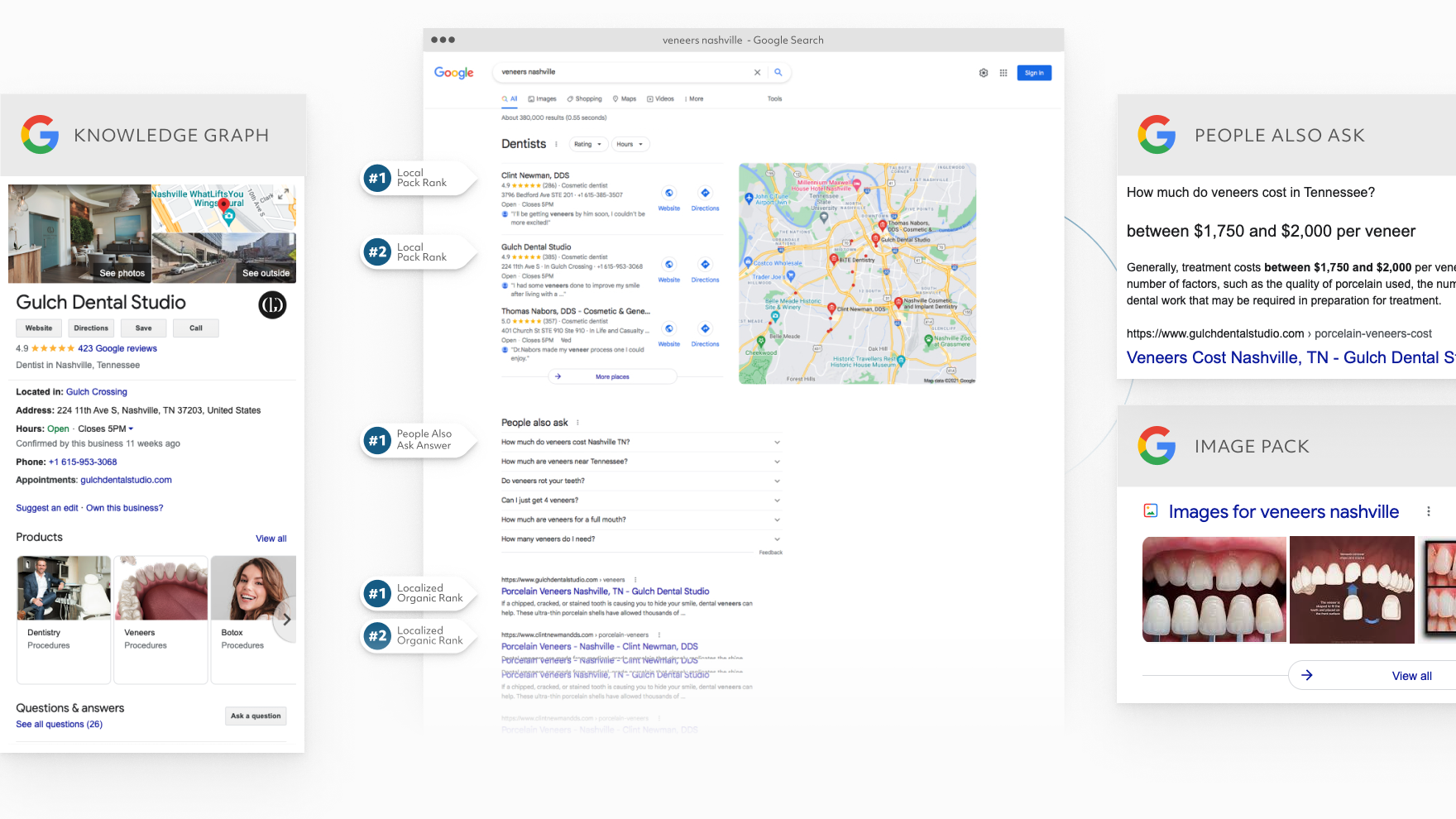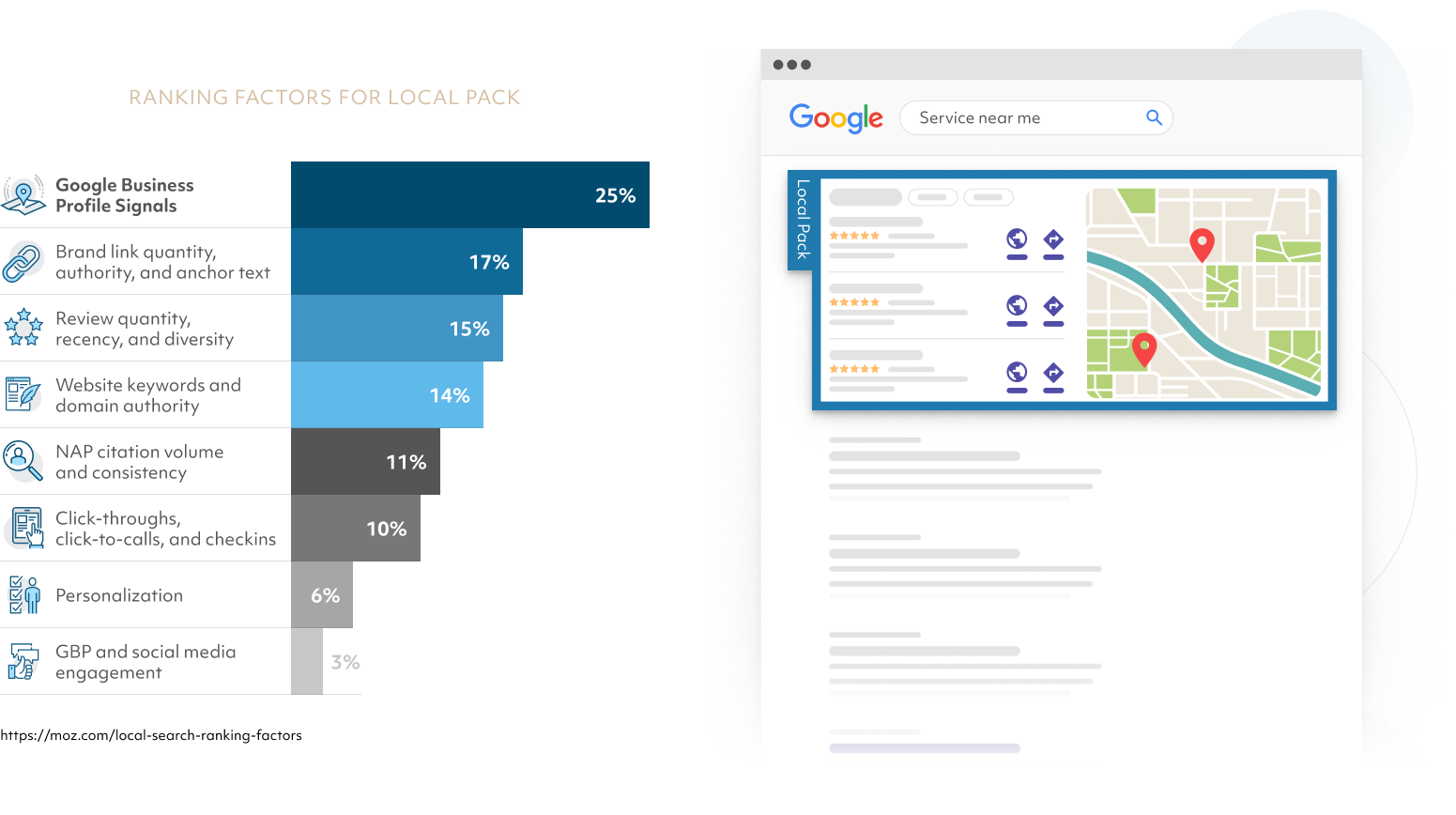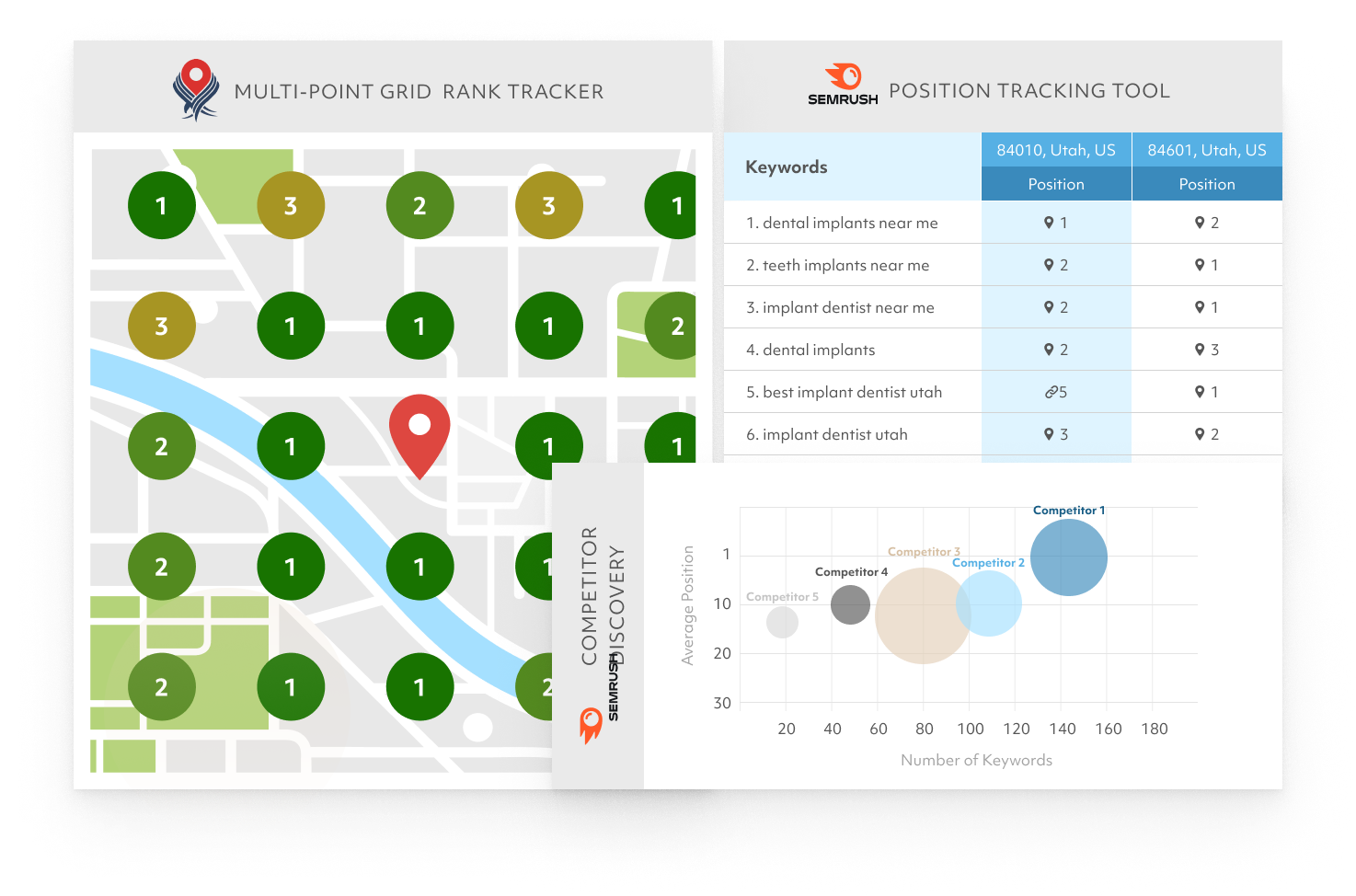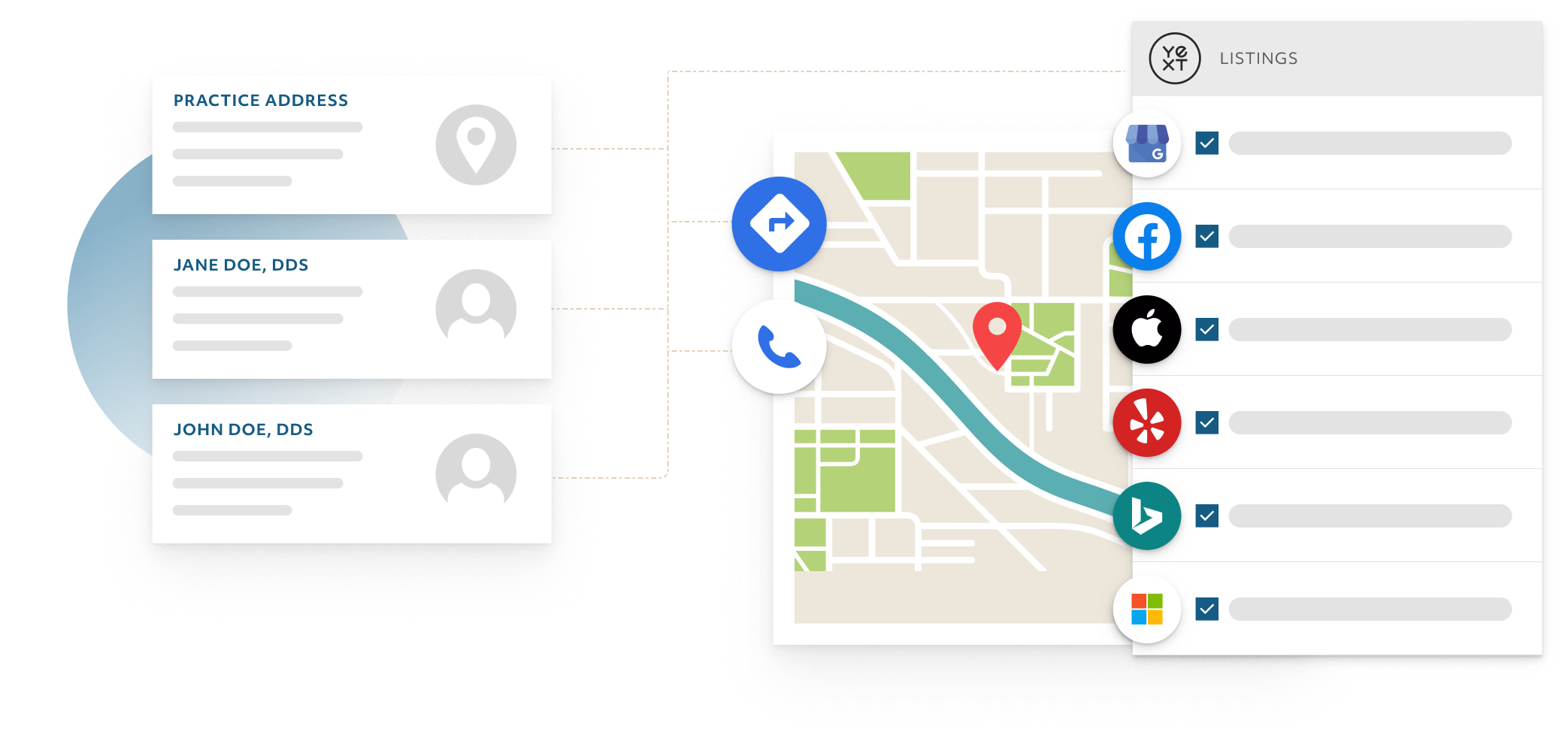An Intro to Local SEO: Tips for Boosting Your Local Rank

Search engine optimization (SEO) is a general term that includes distinct types of search engine optimization, and you'll need to explore every avenue of dental SEO in order to generate new patient revenue and rank on the first page. Organic SEO is the most well-known type of SEO and crucial to any marketing strategy, but businesses should not overlook the new patient potential of local SEO in 2023.

For those who are unfamiliar with the terminology, here's a quick breakdown of the three major types of SEO you should know in 2023:
- Organic SEO - Organic SEO focuses on ranking in unpaid search results. Google’s organic results used to appear higher on search engine results pages (SERPs), but now they appear under paid ads and other Google search features. Even with the lower position on the page, the top three organic results still claim an average of 54.4% of all clicks on SERPs.
- Local SEO - Local SEO has many similarities to organic SEO but also factors in a search user’s location and proximity to provide relevant results. An example would be when a potential patient searches Google for “best dentists near me”. Unlike organic results, local searches can include both paid and unpaid results.
- Technical SEO - This category focuses on the technical aspects of your site such as loading speeds and mobile friendliness. No matter what, you’ll need technical SEO to gain Google’s approval and rank well within its search results. We'll discuss technical SEO ranking factors more in our comprehensive dental marketing guide.
Organic and local SEO target specific types of search engine results, and you’ll need to use both in tandem to survive hyper-competitive markets. Historically, dental practices and SEO companies needed to divide their attention between boosting organic and local rankings. While a good dental SEO strategy in 2023 still requires you to treat organic and local rankings as separate entities, the lines between the two types of SEO have become blurred after a major Google update.
Google's Vicinity Update: How Local SEO Works in 2023
Near the end of 2021, Google released a massive overhaul called the “Vicinity” update to its local search algorithm. Vicinity’s mix of changes created a new playing field for local businesses to rank in search results. The update also replaced the old Google My Business platform with Google Business Profiles (GBP) and increased its importance in how you rank.
The update punished outdated and irrelevant business listings with lower rankings, but the new territory that opened up is more competitive than ever. Google raised the bar for ranking high in local search results while reducing the number of business listings that show up in the local pack section of a results page. As a result, big third-party companies created new tools and extensions for improved optimization opportunities.
The biggest change, however, is that organic and local SEO overlap more than ever before. While local SEO should still be treated as a distinct focus, you should not ignore the exponential boost that comes from combining organic and local SEO.

What to Look for in a Local Search Campaign
Local SEO gives dental practices a chance to rank well without competing for the top spots on a national scale. As a result, many marketing providers are jumping on the local SEO bandwagon in the hopes of enticing more dental practices. Finding local SEO experts can be difficult in the current market, and not all marketing providers have a specialized local SEO team like we do at Einstein Dental. Here are a few things to consider when shopping around for dental SEO companies that offer local search campaigns.
Make the Most Out of Your Google Business Profile
Your Google Business Profile is a necessary tool in any local SEO strategy, and keeping your GBP up-to-date will boost your local rankings and online reputation. You can think of your GBP as a business card that helps Google understand what your local business does and when it's relevant in search results.
When you fill out your GBP for the first time, you'll provide a lot of essential information including your brand's name, address, and phone number (NAP). If you optimize your GBP and dental website correctly, then Google may even feature your brand's NAP in the local pack and provide an immediate conversion opportunity before a user even visits your site.
Updating your GBP also provides an opportunity to clean up outdated information about your brand. Einstein Dental can run an internet-wide check and look for any discrepancies in the way your brand information, such as sites advertising a previous office location. Cutting down on false or conflicting information about your brand will lead to an easier experience for potential patients and improve Google's view of your business at the same time.

Data Can Make or Break Your Local Search Results
Over time, we’ve found out that the biggest factor for successful local SEO campaigns comes down to data. Organic SEO already requires a lot of data and tracking to keep up with the latest algorithm changes, but local SEO introduces new sets of data to consider on top of that.
For example, Google tends to provide different local search results based on the neighborhood where the search takes place. So you could rank in the top three local results for a specific keyword at your dental practice, but you may only rank 17th when conducting the same search from your house.
Keeping track of your rankings from neighborhood to neighborhood is impossible to do by hand, so your marketing provider should have some way of automatically collecting massive amounts of marketing data. If not, you're probably missing out on some significant ranking opportunities. At Einstein Dental, we automatically collect search data through several sources such as LocalFalcon and SEMRush to know where you rank based on proximity at all times.
![]() Treat Your Local SEO Strategy Like an Investment Portfolio
Treat Your Local SEO Strategy Like an Investment Portfolio
Like a good investment portfolio, marketing strategies need diversity. You can’t base your entire strategy on a single set of data, or you’ll get an incomplete view of what’s going on in your market. At best, you’re in the dark about where you stand among your competitors. At worst, you could make a detrimental decision for your business based on misleading information.
That’s why any business investing in dental SEO should establish multiple partnerships with big-data companies. You should always start with Google since it essentially owns a monopoly over the search engine market. At Einstein Dental, we've also partnered with other companies like Yext, Local Falcon, SEMRush, and more to diversify the data portfolios of our clients. Without these large lakes of data, we'd have trouble keeping up with the break-neck pace of algorithm updates and online trends.
Gathering all of this essential data is only the first step toward quality local SEO marketing. The next step is to analyze the data for market insights and then act on those insights before your competition does.
Ready for Some New Patients?
Local SEO is a fantastic new avenue to funnel in new patients and generate more ROI for your dental practice, but most dentists don't have time to take care of patients, run a profitable local business, and manage a local search campaign. However, we've seen many dentists retire comfortably due to the new patient revenue from local search campaigns. If you aren't happy with your current ROI and revenue, contact Einstein Dental for a free SEO evaluation of your dental website and campaigns.


 Treat Your Local SEO Strategy Like an Investment Portfolio
Treat Your Local SEO Strategy Like an Investment Portfolio